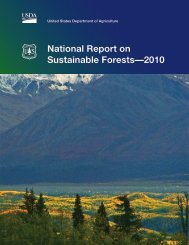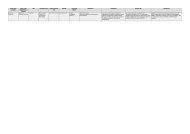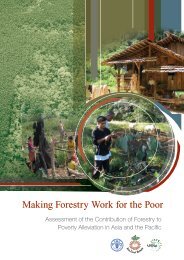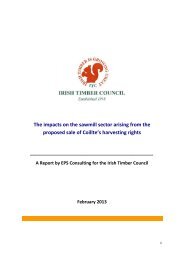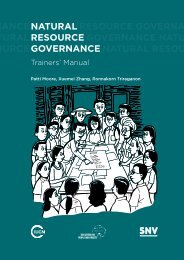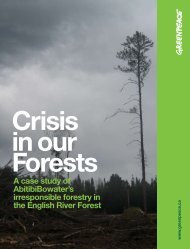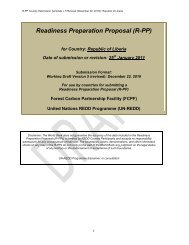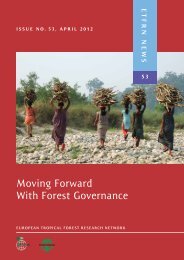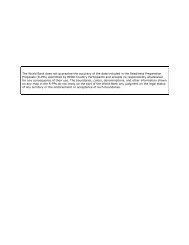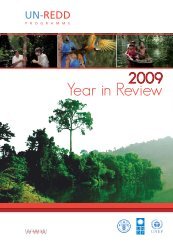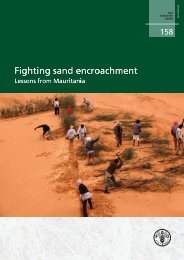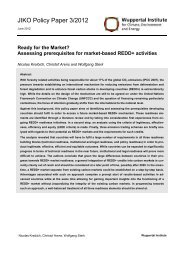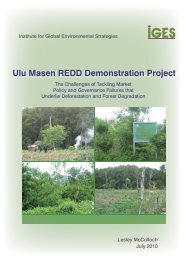Africa - part of its corporate citizenship activities
Africa - part of its corporate citizenship activities
Africa - part of its corporate citizenship activities
Create successful ePaper yourself
Turn your PDF publications into a flip-book with our unique Google optimized e-Paper software.
Name <strong>of</strong> thecandidateOTU, UwemRobert.Name <strong>of</strong> theOrganization orNetworkThe <strong>Africa</strong>n YouthMovementTitle Address/Country Telephone/Fax/e-mail Website Language(s)SpokenPresident 9 Ufeh StreetUyoAkwa Ibom StateNigeriaTel: +2348069563999Email: aymnig@yahoo.comwww.pnyv.org/aym; www.globalnetwork-dr.orgEnglishQuestion #1 Question #2 Question #3 Question #4The <strong>Africa</strong>n Youth Movement [AYM], an NGOis Consultative status with the Economic andSocial Council [ECOSOC] <strong>of</strong> the United Nationsas well as an accredited NGO in affiliation withthe De<strong>part</strong>ment <strong>of</strong> Public Information [DPI] <strong>of</strong>the United Nations aims to strengthenevidence-based policymaking and implentationin Nigeria in the areas <strong>of</strong> disaster risk reduction[DRR]. In collaboration with the Global Networkfor Disaster Reduction [GNDR]- a collaboatingcentre <strong>of</strong> the United Nations InternationalStrategy for Disaster Reduction [UNISDR], wesupport the strengthening disaster riskreduction policies and strategies throughenhanced knowledge, information, data, andtools for the analysis, design, andimplementation <strong>of</strong> pro-poor, gender-sensitiveand generationally balanced sustainabledisaster risk reduction development polices andstrategies in Nigeria. This is possible byimplementing the 'Views from the Frontline-VFL' survey in rural communities accrossNigeria.Our experience from the Views from theFrontline Survey indicates that:a. Actors at community level <strong>of</strong>ten don’tcommunicate or work togetherb. Community members don’t have the capacityor confidence to take initiatives or exerciseleadershipc Community members <strong>of</strong>ten see localgovernment as not understanding the localissues around DRRd Government is sometimes distrustful <strong>of</strong>community groups and civil society, and mayexclude them from political processes anddecisionmaking.e. Civil society may be distrustful <strong>of</strong> localgovernment and lacking in confidence to buildrelationships with policymakersWe have networked extensively working asCountry Coordinators <strong>of</strong> the Views from theFrontline (VFL) Project.VFL 2009 provided substantial evidence thatprogress in developing DRR policies andlegislation has not yet systematicallygenerated widespread change in localpractices –national policies are only as good as thelocal level action that follows. The mostsuccessful DRR programmes are in thosecountries where local government is able toharness theindigenous knowledge, experience andcapacities <strong>of</strong> local people by working in<strong>part</strong>nership with civil society and at-riskcommunities with support from nationalinstitutions.Why focus VFL 2011 on local governance?Local governance is where national policiesare converted into actual practice and isconsidered the single most important factorin determining progress in buildingcommunityresilience. It provides the “enablingenvironment” essential for interactionbetween state authorities, at-risk people andlocal actors. Unless the core components <strong>of</strong>good localgovernance are in place, mobilising moreresources from national governments andexternal sources will not in <strong>its</strong>elfautomatically result in increased capacity &resilience at thelocal level.How does VFL work ?“Views from the Frontline ” is a <strong>part</strong>icipatorymulti-stakeholder engagement processdesigned to monitor, review and report oncritical aspects <strong>of</strong> “local governance”consideredessential to building disaster resilientcommunities. The review uses a surveyquestionnaire based on a series <strong>of</strong> “coreindictors” intended to reflect the corefunctions <strong>of</strong> localgovernance as articulated in the narrative <strong>of</strong>the Hyogo Framework for Action . The VFLprocess is designed and coordinated by theGlobal Network Secretariat throughregional nodes and administered by locallyactive<strong>part</strong>icipating civil societyorganisations. In a variety <strong>of</strong> differentgeographical locations the <strong>part</strong>icipatingorganisations willconduct guided face-to-face interviews andfocus group discussions with two keyinformant groups (local government <strong>of</strong>ficialsand community representatives) to assessthe level<strong>of</strong> progress achieved in accordance with a 1-5 Likert Scale. One <strong>of</strong> the most criticalelements <strong>of</strong> the engagement process will bethe identification <strong>of</strong> relevant stakeholders inaffected communities, local governmentministries and secvtoral de<strong>part</strong>mentsrelevant to disaster risk reduction.Following an initial analysis <strong>of</strong> the surveydata from local government and communityinformants, a programme <strong>of</strong> localWe have worked to ensure resiliencethrough disaster risk reduction whichcontributes to climate change adaptability.Working with the support <strong>of</strong> the UnitedNationsInternational Strategy for Disaster Reduction(UNISDR) towards attainment <strong>of</strong> the HyogoFramework for Action (HFA). Forests andREDD effectively contributes to sustainablelivelihood and environmental sustainabilitythus provide anchorage for climate changeadaptability, resilience and disaster riskreduction.Yes, we receive funding and support fromthe United Nations International Strategyfor Disaster Reduction (UNISDR), the UNagency tasked with Disaster RiskReduction andcontributing to the attainment <strong>of</strong> the HyogoFramework for Action (HFA).




